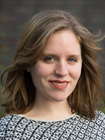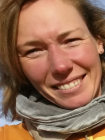Externally funded research projects Discourse and Communication
Please visit this webage for current PhD projects in Discourse & Communication

NWO Veni project: Talking about chronic pain — the discursive construction of the body in pain clinic consultations
Our society conventionally views mind and body as separate entities. However, research shows that diseases – chronic ones in particular – consist of an interplay between body, mind and sociocultural aspects. This project researches the tension between these two perspectives that arises in communication between healthcare professionals and chronic pain patients in pain clinics.
NWO funding for PhD project ‘Nothing but the truth: Unraveling socially desirable responding in self-reports’
The project is about socially desirable responding - a common phenomenon where, in order to appear more desirable, people do not report completely honestly about themselves in interviews or questionnaires. The project is being carried out by PhD candidate Emma Zaal, led by Prof. John Hoeks and Dr. Yfke Ongena of the Discourse and Communication research group. In the project, the brand new PhD candidate will investigate how socially desirable responding can best be predicted, measured and reduced. The outcome of the project is a model of question answering that includes socially desirable responding. The results of this project can be used for theory development, question formulation and questionnaire design, but also for policymaking and the development of public campaigns aimed at behavioral change.
PAT: Pictures and Text
"My research addresses the use, effects and optimisation of documents that contain multimodal information (e.g., pictures, text, speech, video). I combine approaches from Information Design Research and Computational Linguistics employing corpus collection and analysis, (automatic) annotation, experimentation, and natural language generation. This research results in empirically validated models for effective multimodal documents. Results of practical value include new annotated multimodal corpora, implemented taggers to automatically annotate potentially effective properties of multimodal documents, algorithms to automatically evaluate and to automatically generate effective text-picture combinations and authoring guidelines to produce good quality multimodal documents." Link to project website
DUDOC programme (Kees de Glopper)
The Steering Committee 'Vakdidactiek Geesteswetenschappen '(Teaching Methodology Humanities) develops a national formation plan in the field of teaching methodology in the humanities in order to appoint professors, associate professors and / or assistant professors who are assigned to further develop this domain.
The Steering Committee develops and coordinates a program, DUDOC-ALFA, which aims to have teachers in secondary education and teacher trainers in higher education obtain their doctorate on a subject in which a clear relationship is established with the practice in secondary education.
At CLCG the research two PhD research projects started within the programme: Jeroen Steenbakkers, project title "Bewuste taalvaardigheid in lessen Nederland" (Conscious language skills in Dutch lessons) and Moniek Vis, project title "Genredidactiek bij Nederlands: blijvend betere samenhang en bewuster geletterde leerlingen" (Genredidactics in Dutch: for permanently better coherence and more conscious literate students). Both are supervised by Kees de Glopper.
Language competencies for a dynamic labor market (Kees de Glopper)
This practice-oriented research by a consortium of four MBO and two research institutes investigates which language competences are needed on the dynamic labor market and which training practices contribute to the ability of training teams to respond to the demands of the dynamic labor market.
The following questions are central here. (1) What language requirements does the professional field, when entering the labor market and in the longer term? And how can training programs be organized in such a way that the language competences they make are in line with these requirements? (2) What practices do the training teams have for the development of responsive vocational education? Which gaps can be recognized in these training practices? And to what improvements does redesign of these training practices lead?
The proposed research consists of a four parallel and interconnected case studies characterized by practical and action-oriented research. In the case studies a mix of methods is used: literature research, interviews, questionnaires, document analysis of policy texts from the study programs and the professional field, genre analysis of professional texts and interviews, language assessment. The actors who do research and the participants who participate as a subject: the training teams; the language and subject teachers; the students and their supervisors in the workplace; the alumni, their managers and clients; education-oriented sector funds; the researchers. The chosen design matches the nature of the knowledge and change needs of the institutions involved. The case study character guarantees the obtaining of situated and precise insight into the nature and changeability of the outlined problems.
ERASMUS+ Strategic Partnership (Erika Darics)
Teachers of English for Future Europe (TEFE): EU mobility and employability through the Internationalisation of Teaching Practice (2020/09-2023/09).
| Last modified: | 14 March 2025 2.05 p.m. |



